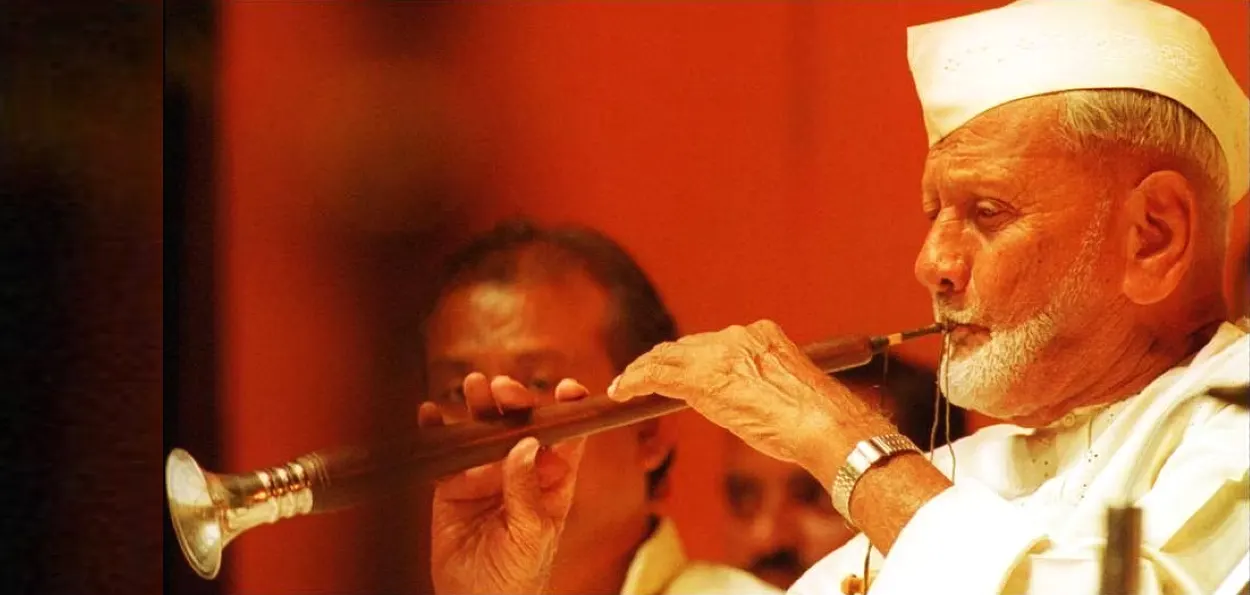
Sayyed Taleef Haider
According to an Ayaat in Quraan: “My Lord has only forbidden open and secret indecencies, sinfulness, unjust aggression, associating ˹others˺ with Allah ˹in worship˺—a practice He has never authorized—and attributing to Allah what you do not know.”
According to Islamic scholar Javed Ahmed Ghamadi, the Qur'an explicitly forbids these five actions, making it quite apparent that nothing else is prohibited. One part of it is that if someone declares anything else to be haram (forbidden and sinful) even though Allah has not forbidden it, then this declaration itself is haram.
Music is not specified among these five forbidden actions and therefore it’s not comparable with sin and shirk (apostasy). Why and how has music been labeled as haram in some quarters? Are the scholars and jurists misinformed that music is not regarded as one of the five banned activities in Islam?
It doesn’t seem to be the case of narrow-mindedness, but rather an act of dishonesty and maybe a lack of intelligence. As a result, the poetry or words expressed through music also contain a certain amount of pleasure. Enjoyment occasionally includes shirk, unjust rebellion, or corruption as a component. Take the example of one of Ghalib's couplet:
Na Tha Kuch to KhudaTha, Kuch Na Hota to Khuda Hota
Deboya Mujh ko Hone ne Na Hota Main to Kya Hota
(If there was nothing then there was God, if there was nothing there would be God, I drowned because I am here, if not, what would have happened?)
There is nothing ugly about the fact that even if nothing had occurred from an Islamic perspective, God's presence was, is, and always will be. However, the second stanza's philosophical sentence demonstrates a clash with God's will, since the poet objects that his existence drowned him.
On the surface, this doesn't look like music, but when you demonstrate how music is used in poetry, you realise that music is what gives words a sense of urgency. As a result, the jurists object to this approach because they are afraid of including one of these five components in the speech However, there are innumerable instances where appreciating music in a certain way brings one closer to God. For example, look at this verse:
Koi to Hai jo Nizam-e-Hasti Chala Raha Hai Wohi Khuda Hai
Dikhai Bhi jo Na de Nazar Bhi jo Aa Raha Hai Wohi Khuda Hai
(There is someone who is running the system of existenc; that is God, the one who is not visible and is also visible, that is God)
Due to Islamic law, the poem's melody serves to further support the presence of God and cannot be included in the list of these five deeds. This demonstrates that music cannot be disregarded as carelessness. Because, on the one hand, it tends towards the deeds that the Qur'an emphasizes.For example, look at this verse of the Qur'an:
And those who maintain whatever ˹ties˺ Allah has ordered to be maintained, stand in awe of their Lord, and fear strict judgment.
Music is leaning towards the rights of Allah that are expressed in this verse. How can speech that affirms the existence of God be deemed haram, even if it takes the form of a song and is accompanied by music?
Instruments used in music are no different. For instance, although a knife's purpose is to cut things, doing so on someone else's hand is prohibited. But one should use a musical instrument to generate a tone that does not encourage neglect but, like Maulana Rum, becomes involved in such situations, giving rise to words like Masnavi:
Nay Hareef-e Har Ke Az Yaar-e-Bureed
Parda Hayash Parda Haye Ma Dareed
(The flute is the companion of one who is cut off from the beloved,The music of his ragas tore the veils of our hearts.)
So how can Music be declared haram?
